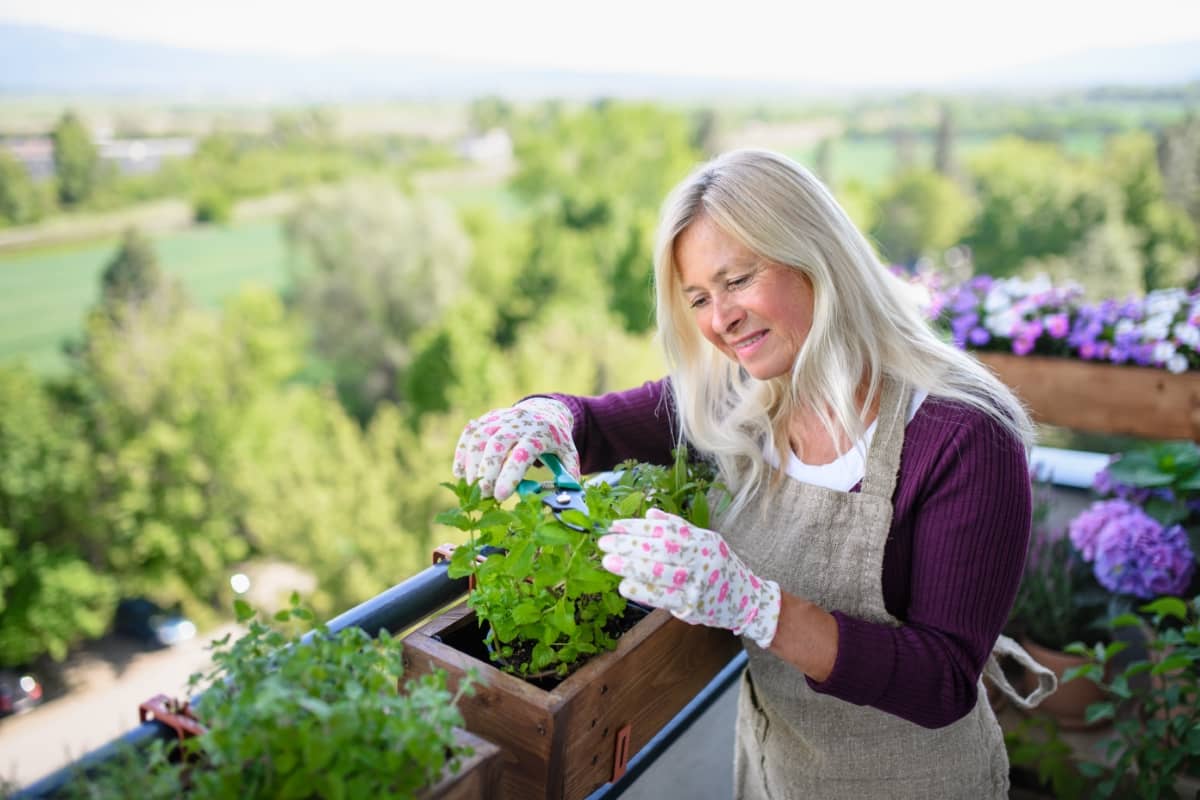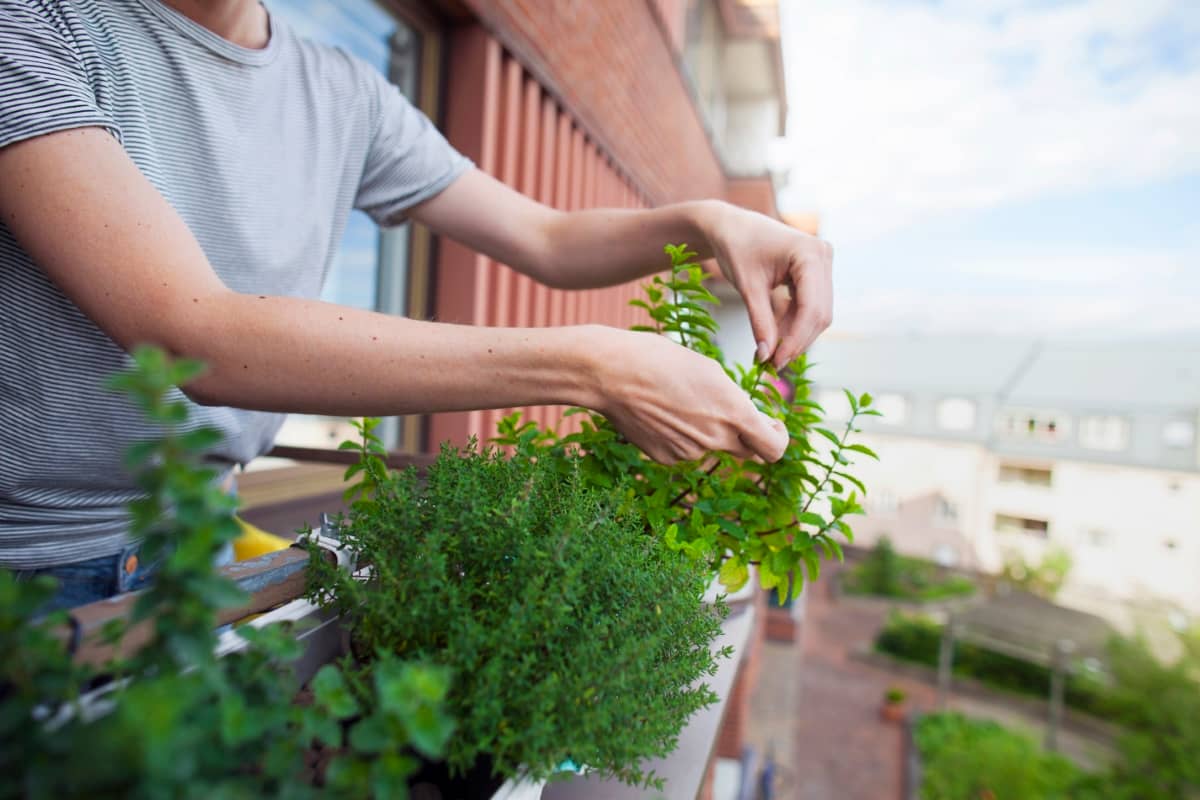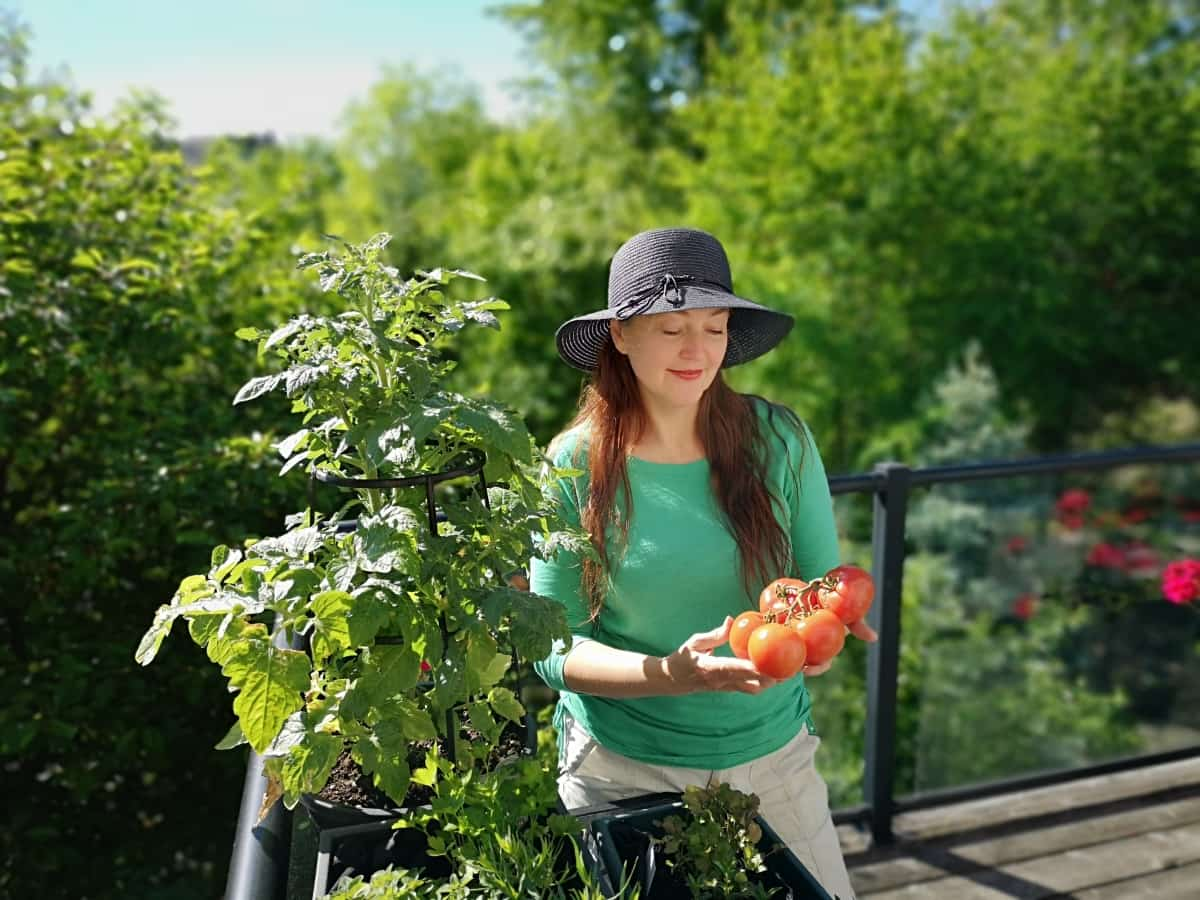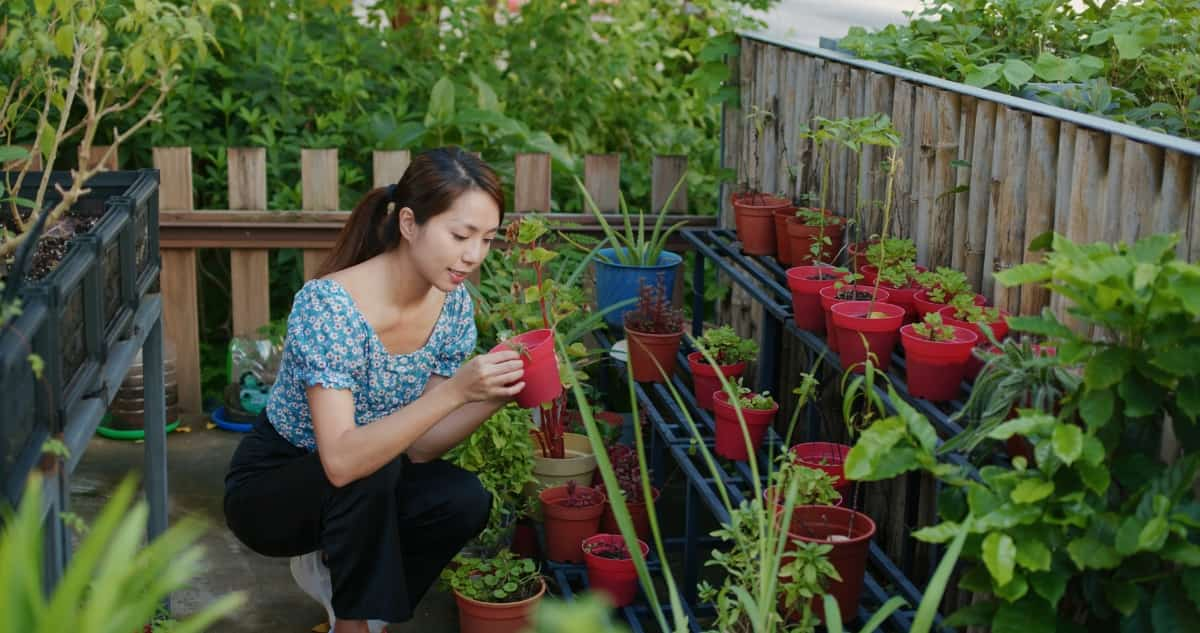Embarking on the journey of how to set up organic balcony gardening in pots brings a unique blend of challenges and rewards. Apartment balcony gardening is becoming increasingly popular, especially among beginners looking to grow their own food.

Whether you’re interested in organic terrace farming or simply want to try balcony vegetable gardening for beginners, the process involves understanding the best practices for growing vegetables and fruits on your balcony. With the right balcony vegetable garden kit and a host of balcony gardening ideas, you can transform your space into a lush, productive haven.
How to Set Up Organic Balcony Gardening
Choosing the Right Containers for Organic Balcony Gardening
When setting up your balcony garden, selecting the right containers is crucial. You need pots that are large enough to accommodate the roots of your plants yet small enough to fit in your limited space. Opt for lightweight containers with drainage holes to prevent waterlogging. Materials like plastic, fiberglass, or resin are ideal as they are not only light but also retain moisture better than terracotta.
Remember, the size of the container should match the growth habit of the plant; deeper pots are for root vegetables, and wider ones are for sprawling plants. Also, consider self-watering containers, which can be a boon for busy gardeners, ensuring plants receive consistent moisture.
Selecting the Best Organic Soil Mix for Balcony Gardens
The foundation of a thriving organic balcony garden is the soil mix. Choose a high-quality organic soil mix that is well-draining yet able to retain enough moisture. The mix should be rich in organic matter like compost, which provides nutrients and enhances soil structure. Adding perlite or vermiculite can improve drainage and aeration.
Remember, different plants have varying soil requirements, so it might be necessary to adjust the soil mix. For instance, leafy greens thrive in nitrogen-rich soil, while root vegetables prefer a more phosphorus-heavy mix. Regularly enriching the soil with organic compost or a balanced organic fertilizer will keep your plants healthy and productive.
Implementing Natural Pest Control Methods in Balcony Gardening
Organically dealing with pests is essential for a healthy balcony garden. Avoid chemical pesticides; instead, opt for natural solutions like neem oil, soap sprays, or garlic and chili pepper concoctions that deter pests. Increasing beneficial insects, such as ladybugs and lacewings, can serve as a natural means to manage pest populations.
Additionally, the use of physical safeguards like netting or row covers can shield plants from larger pests. Regularly inspecting plants and removing any pests by hand is also effective. Remember, a healthy plant is less susceptible to pest attacks, so maintaining proper plant care is a key preventative measure.
Maximizing Sunlight for Organic Balcony Gardens
Sunlight is a critical factor in balcony gardening. Most vegetables and fruits require at least 6-8 hours of direct sunlight daily. Position your garden to maximize exposure to sunlight. If certain areas of your balcony receive more light, prioritize sun-loving plants like tomatoes and peppers there while placing shade-tolerant plants like lettuce and spinach in less sunny spots. Reflective surfaces, like mirrors or foil, can be used to redirect light to shadier areas. However, be mindful of overheating and provide shade during the hottest part of the day if necessary.
In case you missed it: Everything You Need to Know About Growing Betel Leaf Plant in the Balcony Pots

Companion Planting Techniques for Balcony Gardens
Companion planting is a strategic approach that can enhance the health and yield of your balcony garden. It involves planting certain plants together that benefit each other by repelling pests, improving soil health, or providing shade. For example, planting basil near tomatoes can help repel pests and improve flavor.
Marigolds are excellent for deterring nematodes and other pests. Remember, not all plants are compatible, so it’s important to research which plants pair well together. This technique not only maximizes space but also promotes a biodiverse environment on your balcony.
Watering Strategies for Organic Balcony Gardening
Effective watering is essential for the prosperity of your balcony garden. Excessive watering may result in root decay, while insufficient watering can cause plant stress. Utilize a watering can or a gentle nozzle-equipped hose to prevent soil disruption and plant damage. The best time to water is early in the morning or late in the afternoon to reduce evaporation.
Implementing a consistent watering schedule helps plants establish a strong root system. For convenience, consider setting up a drip irrigation system or self-watering planters, especially useful for those with busy schedules or during hot weather.
Utilizing Vertical Space in Small Balcony Gardens
In small balconies, vertical gardening is a space-saving and aesthetic solution. Use trellises, hanging planters, or shelves to grow plants upwards. Climbing vegetables like beans or cucumbers and trailing plants like tomatoes are perfect for vertical growth. This method not only saves floor space but also creates a lush, green environment. Vertical structures can also provide shade and privacy, making your balcony an inviting space. Remember to secure these structures safely and ensure they have enough support to bear the weight of the plants.
In case you missed it: How to Use Neem Oil on Balcony Garden Plants: A Natural Way of Balcony Pest Management

Organic Fertilization Practices for Container Plants
For container plants in an organic balcony garden, using the right type of fertilizer is essential. Utilizing organic fertilizers like compost, worm castings, or organic liquid alternatives is recommended due to their gradual nutrient release and soil-enhancing properties. Apply these fertilizers in accordance with individual plant requirements, typically every 4-6 weeks, while exercising caution to prevent over-fertilization, which can be detrimental to plants and cause nutrient runoff.
Growing Herbs and Vegetables in Limited Balcony Spaces
In limited balcony spaces, growing herbs and vegetables requires creativity and careful planning. Opt for compact varieties of vegetables and herbs that are known for their suitability in small spaces. Utilize pots and containers of different sizes to accommodate various plants. Herbs like basil, cilantro, and mint are particularly well-suited for balcony gardens due to their compact growth and frequent use in the kitchen. By carefully selecting plants and arranging them efficiently, even the smallest balcony can become a productive and aromatic green space.
In case you missed it: Frequently Asked Questions About Balcony Gardening

Conclusion
Embarking on organic balcony gardening can transform your urban space into a green oasis. By carefully selecting the right containers and soil mix and employing strategies like companion planting and natural pest control, you can create a sustainable and productive garden. Remember, every balcony garden is unique, so experiment and learn what works best for your space and climate. With patience and care, your balcony garden will not only provide fresh produce but also a sense of achievement and connection to nature.
- Feed Your Flock for Less: Top 10 Tips to Save on Chicken Feed
- Ultimate Guide to Ossabaw Island Hog: Breeding, Raising, Diet, and Care
- Hatching Answers: The Top 10 Reasons Your Chickens Aren’t Laying Eggs
- Eggs and Economics: Breaking Down the Cost of Raising Backyard Chickens
- Defend Your Greens: Proven Methods to Keep Iguanas Out of Your Garden
- Ultimate Guide to Cinnamon Queen Chicken: A Comprehensive Guide for Beginners
- Ultimate Guide to California Tan Chicken: Breeding, Raising, Diet, Egg-Production and Care
- Ultimate Guide to Marsh Daisy Chicken: Breeding, Raising, Diet, and Care
- 10 Types of Chicken Farming Businesses You Can Start for Profits